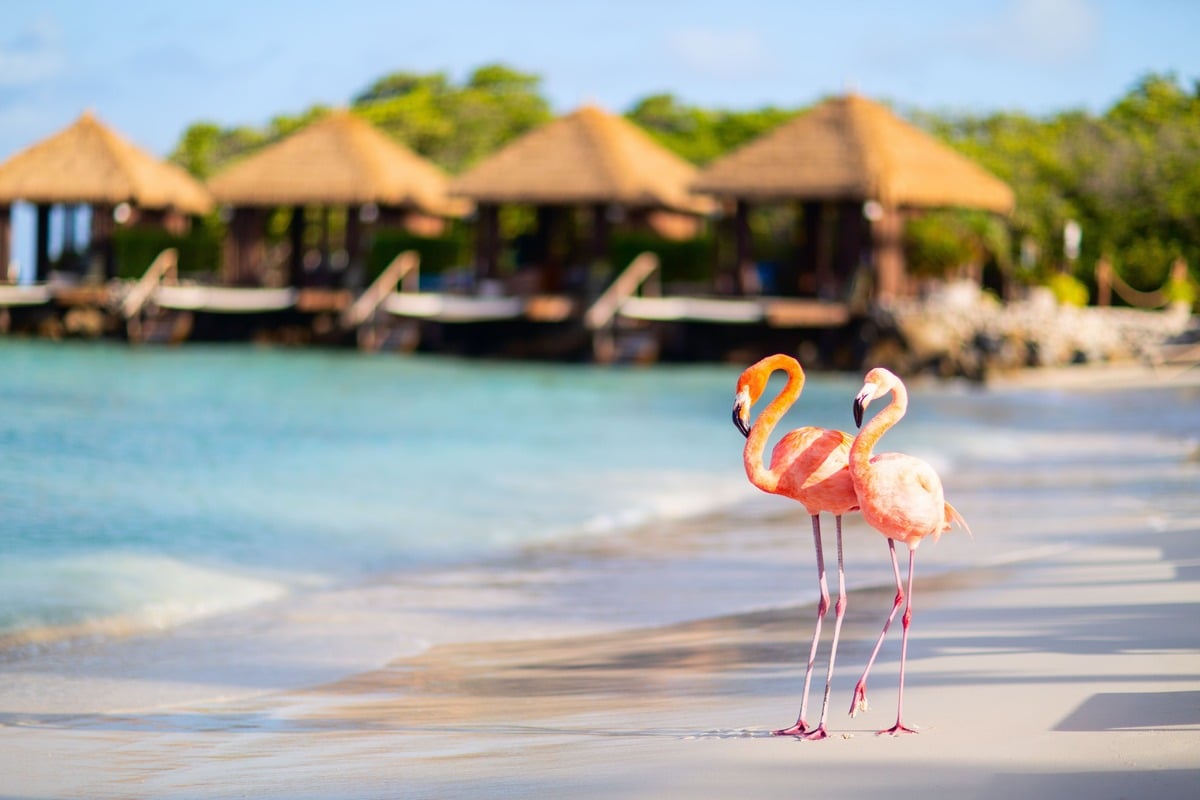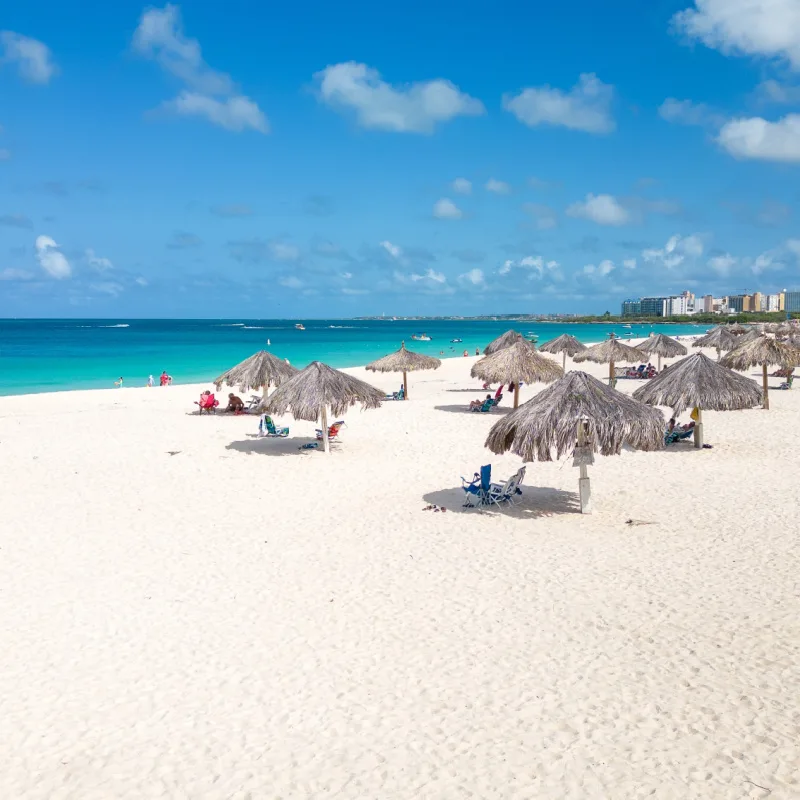Security is a main concern for Americans flying abroad in the current climate, including the Caribbean.
Given the state of the world, U.S. vacationers are getting increasingly worried about their own personal safety when traveling, and you can’t exactly blame them.
Regardless of where you stand on things, we can all agree there’s a rising anti-American sentiment bubbling across many countries.

Regardless, there’s this one underrated Caribbean spot where crime levels are close to being negligible, and that’s not us saying it (though let’s face it, a Travel Off Path seal of approval usually suffices).
It’s a brand new study called the Caribbean Island Safety Index, with data compiled from travel advisories, such as the United States’ own Department of State, crime indexes like Numbeo, hurricane risk, and healthcare infrastructure.
Aruba Is The Safest Island In The Caribbean
The safest island in the Caribbean right now is Aruba, a Dutch-administered territory best known for its paradisaical white sands, pink flamingo-inhabited beaches, and colorful colonial architecture.

In the study, destinations are assigned scores from 0 to 10, with 0 being ‘worst-performing’, and 10 signifying ‘best’. In the ‘Advisory’ category, Aruba scored a perfect 10, in line with the official U.S. guidance:
According to the Department of State, Aruba is a Level 1 destination.
For those of you who aren’t familiar with the terminology, the U.S. agency categorizes different countries between Levels 1 and 4, with Level 1 being the absolute safest, Level 2 being reserved for the moderately-safe, Level 3 for the least-safe, and Level 4 encompassing no-go zones.
In their own words, Americans can exercise ‘normal precautions’ when visiting Aruba as crime levels are in check.

Why Is Aruba So Safe?
Speaking of which, Aruba scores a near-perfect 9 out of 10 under ‘Crime’, according to the study in question.
There are a few factors contributing to that. For starters, it is part of the Kingdom of the Netherlands, meaning residents are full Dutch citizens, and its political stability and law enforcement are unrivaled in the Caribbean.
Think of it as an extension of Europe in the Tropics, but arguably more vibrant and flavorful: much like in the Netherlands, violent crime is exceedingly rare, and most incidents refer to petty theft as opposed to serious offenses.
In short, as long as you don’t leave items unattended on public beaches, you’ll be just fine.

On top of that, the island’s economy relies heavily on tourism, so the Government does not play around when it comes to ensuring visitors feel safe, be it through the visible police presence in tourist areas, or the crackdown on illicit activities.
No Hurricanes?
Aruba also scores 10 under ‘Hurricane Risk’, meaning this particular natural phenomenon, which often batters other parts of the Caribbean, typically does not occur here.
You can never rule it out completely, but we can’t think of a single recent hurricane event that affected Aruba.
In this regard, geography is primarily to thank for: not only does Aruba’s small size make it harder for organized crime to firm roots, but the island’s location far south in the Caribbean, outside the Atlantic hurricane belt, keeps it protected.

On top of that, the majority of tropical storms develop to the east, before moving northwest toward the central and northern Caribbean, bypassing Aruba altogether.
It does get the odd heavy rain and strong winds, but it’s unlikely to be hit head-on by a hurricane.
Does Aruba Have Good Healthcare?
We’ve been banging on about the importance of taking out insurance prior to traveling since at least the pandemic years, and dangerous pathogens aside, you definitely don’t want to go anywhere in the Caribbean without being insured.
You never know what could happen on a vacation, whether it’s a mere, unfortunate encounter with a stingray or a freak accident, and across many of these islands, services are suboptimal, and clinical centers are sparsely located.

Not in Aruba, though: once again, it’s a very small landmass, at only about 19 miles long and 6 miles wide, and it offers good healthcare compared to the average Caribbean island. Based on the Caribbean Island Safety Index, it’s an 8 out of 10.
The main hospital, Dr. Horacio E. Oduber (HOH) has about 248 beds, over 20 medical specialties, including neurology, oncology, and intensive care units, and they are able to conduct advanced diagnostics (MRI, CT scans, escondopies, and so on).
On top of that, there are a number of clinics scattered around the territory, ensuring locals and visitors alike are taken care of in emergency scenarios.

Overall, Aruba scores 9.3 out of 10, the most out of any Caribbean island listed. The runner-up is Barbados (9.2), followed by Grenada (9.0), and the top 5 is completed with Curaçao, yet another Dutch Caribbean outpost (9.0), and Antigua & Barbuda (8.1).
If you’re unsure about safety guidelines at your next destination, make sure you check out our new TOP Travel Advisory Checker. It’s free to use, and it’s got none of the usual fluff you find in official Government websites.
The Travel Off Path Advantage: Your Travel Toolkit
Subscribe To Our Latest Posts
Enter your email address to subscribe to Travel Off Path’s latest breaking travel news, straight to your inbox.


